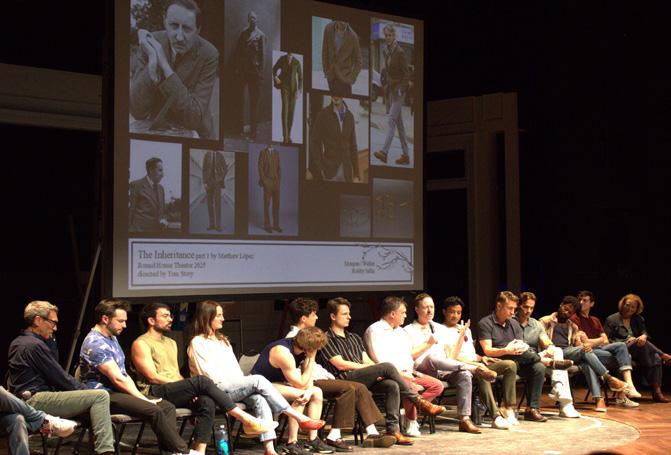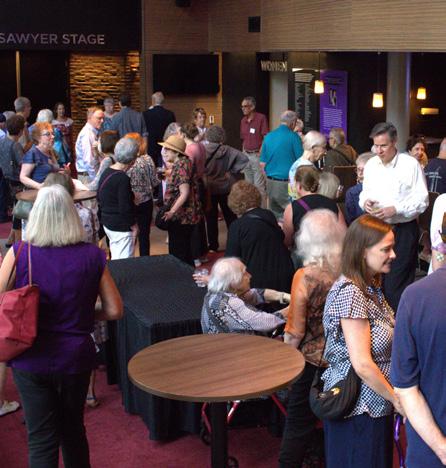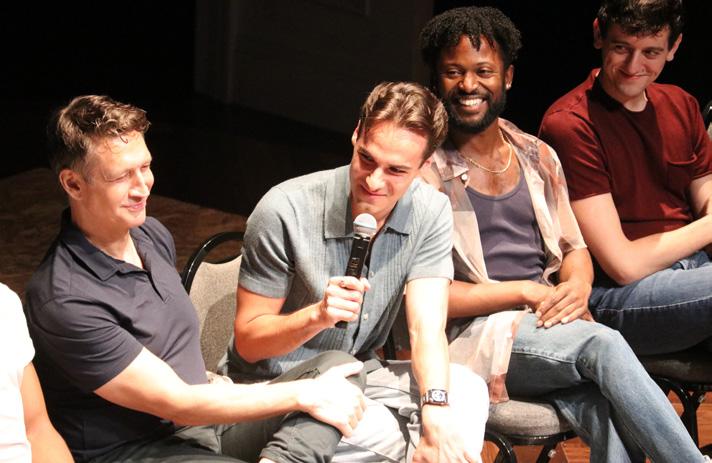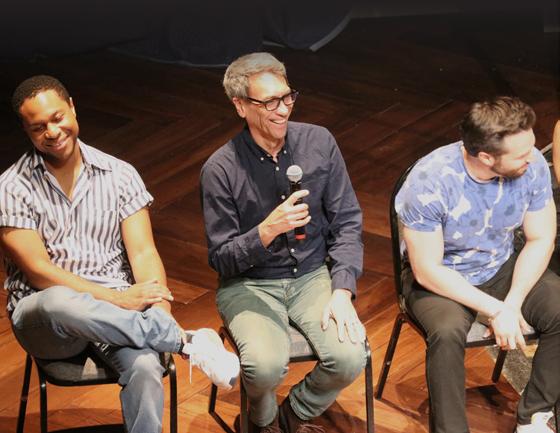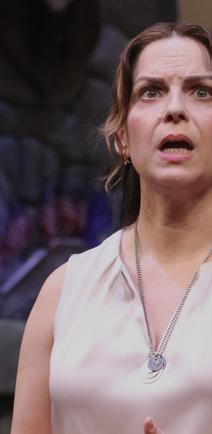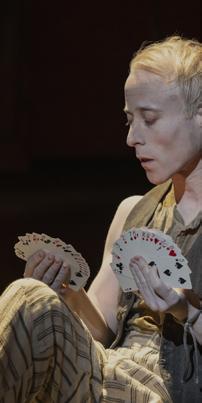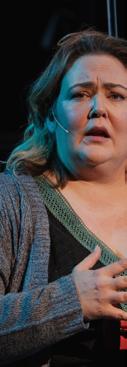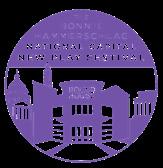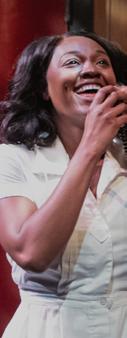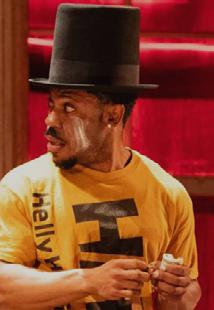




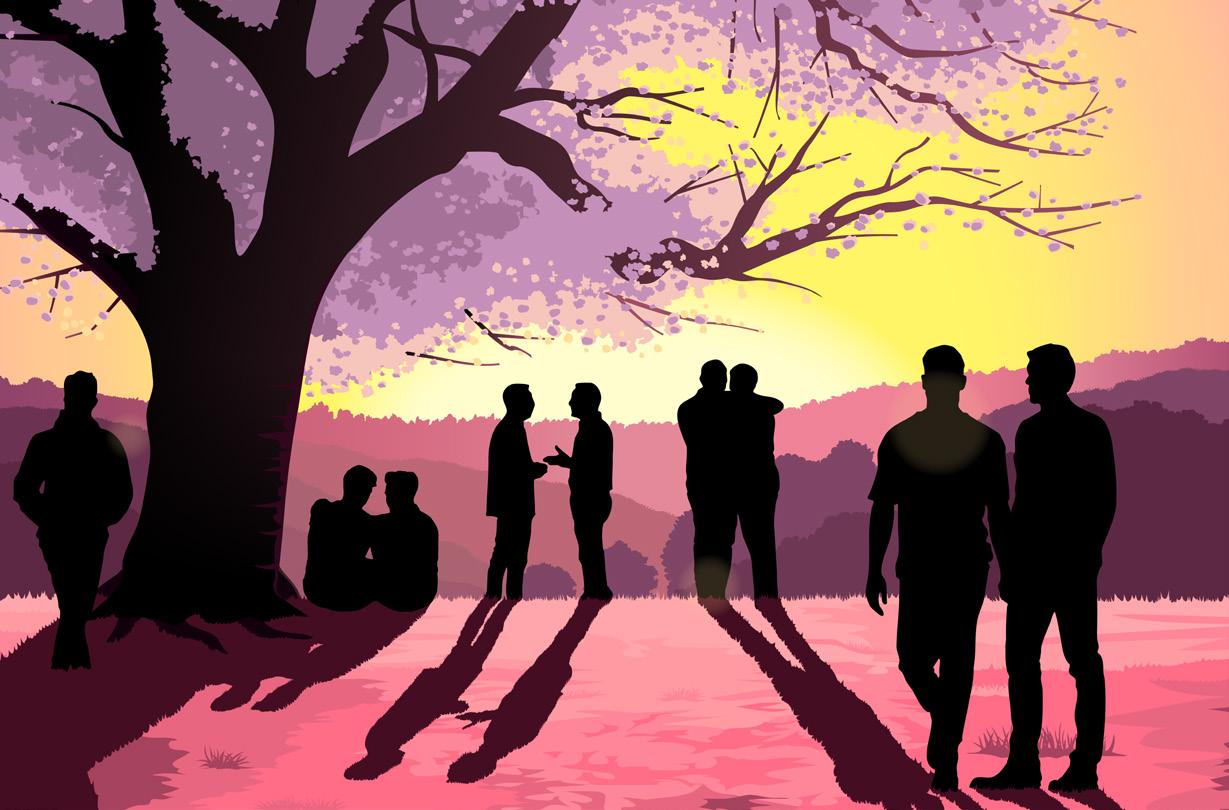
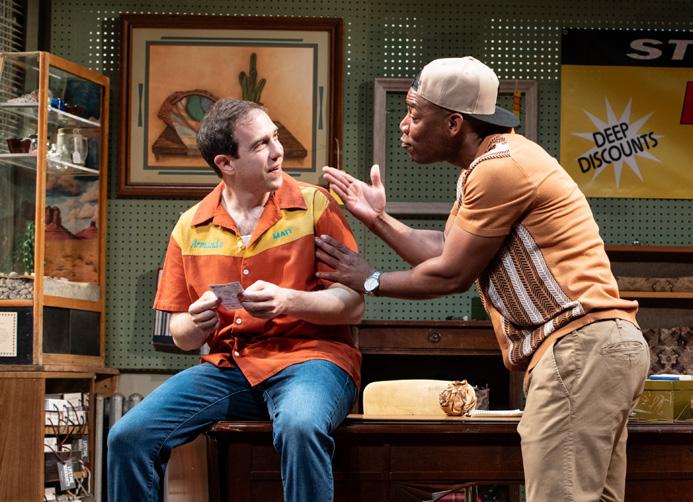

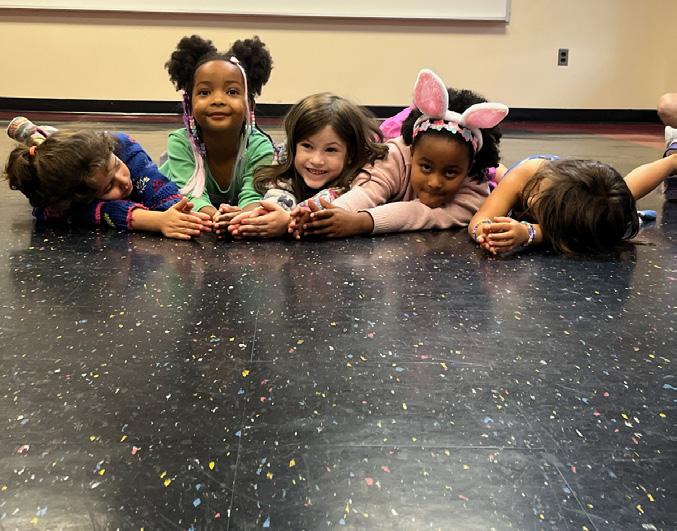





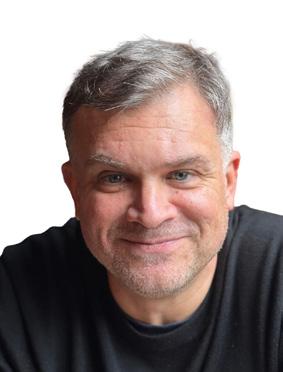
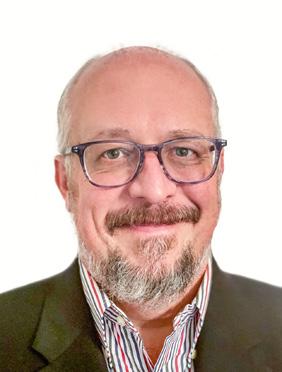
This summer has been unlike any other at Round House. It’s not often we have the honor of hosting rehearsals throughout the summer, and it has been a joy to watch the incredible cast of The Inheritance create a beautiful production. As you might guess, the play deals with inheritance as a concept, and how we pass down the joys, the struggles, and the evolving questions of how we live our lives and tell our stories to the next generation. In this issue of Backstage , get a glimpse at not only how we create meaningful stories on our stage today, but how we foster the next generation of artists and audiences.
First, meet one of the stars of The Inheritance , Robert Gant. Perhaps best known for his role as Ben Bruckner on Queer as Folk , Robert has a long and storied career in film and television, and we’re thrilled to have him anchoring The Inheritance as Henry Wilcox. Learn more about what inspired him to take on this seminal role on pages 4-6.
As rehearsals were underway, we also welcomed hundreds of kids to Round House to discover their own artistry over 10 weeks of summer camp. Our youngest artists spent time discovering magical kingdoms and mastering time travel, while others made mashups of familiar stories and starred in their own superhero movies. Teens honed their musical theatre chops and explored improv and stand up, and some even took leadership roles in our Teen Educator program. Get a sneak peek into the magic of summer camp on pages 7-9.
On page 13, get to know Dylan Parham, one of our very own Box Office staff members and the newest member of our Street 70 legacy giving society. Dylan’s generosity and foresight at a young age is inspiring and underscores the importance of planning for the future and investing in your own legacy.
The start of a new season is always a special time and kicking it off with a play that we have wanted to produce since it premiered on Broadway in 2019 makes it mean even more. We’re so grateful to have you here with us. Your support helps us to plan for our future so that we can continue to bring these epic pieces to life.
See you at the theatre!

RYAN RILETTE ARTISTIC DIRECTOR

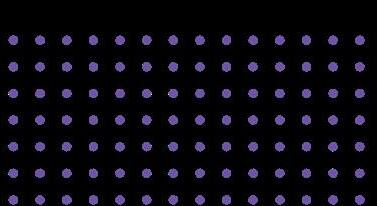
ED ZAKRESKI EXECUTIVE DIRECTOR
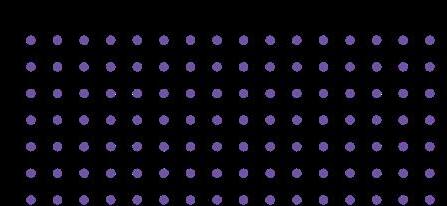

We welcomed four new members to the Round House Board of Trustees. These leaders share why Round House is important to them.

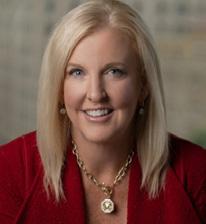
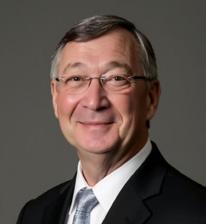
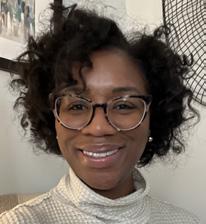
“Round House has been such a welcoming, adventurous, supportive, and important theatrical home for me and for so many artists! It’s an honor to serve a community that has served my work so well. I’m thrilled to deepen my relationship with the staff, board, and fellow artists at Round House in this way.”
“Growing up in the DMV, my family frequently attended performances at my local theatres. When I moved back to the DC area after law school, I enjoyed taking my own children to shows. It wasn’t until I was divorced, however, and had the opportunity and the burden of exploring life as a single person, that I rediscovered my love for theatre. Round House was pivotal in my story, a place I could go as a single person and enjoy thoughtful productions. Even though I am now happily remarried, theatre and Round House remain important institutions in my life, a reminder that selfdiscovery is a critical part of every person’s journey.”
“Maureen and I love everything about Round House. The Teen Performance Company, a unique program for the next generation of theatre professionals, is especially meaningful for us.”
“Round House is my theatre home and therapy for life. I have been a patron since 2017. I chose to join the board for a deeper connection and to give back to Round House.”

ROBERT GANT is best known for playing Ben Bruckner on Showtime’s groundbreaking series Queer as Folk . His character was the first character to be in a legal gay marriage shown on American television and served to destigmatize living with HIV. Our Development Associate, Natalie Cumming, met with him to discuss what is different—and the same—today, and how he connects with The Inheritance .
NATALIE CUMMING: When did you first hear about The Inheritance and what is unique about working on it?
ROBERT GANT: I first heard about The Inheritance in 2018. It was playing at the Young Vic in London at the time during the play’s first iteration, before it went to the West End. When I was passing through London, everyone said, “Oh, you absolutely have to go see this!” So, I was made aware right away of the magnitude and importance of this piece. And, in terms of what’s unique about our version, it has been tremendous to be able to work with a group of queer actors when telling this story. As a gay man, I can feel it. As we go through rehearsals, including in the dance sequences, I have such a clear sense that this is a cast that knows this experience. I think this production is also unique because it’s happening in D.C. at this time. The show is first set during the 2016 election, and that’s talked about, of course, the stakes of that. This is the first time the play has been done during this current administration. So, it’s quite interesting how the conversations play in a whole new way.
“
There’s a thrilling, energizing, alive component [to live theatre] that is communal in a way that TV and film isn’t.
”
the extent that it is in the play at a time when much of our culture is disappearing. There’s less and less awareness of what that “thing” was. The AIDS monument in West Hollywood is nearing completion, and that’s, of course, a literal monument to that history. So, to also have this literary piece contemplate, recount, and express some of the pain of that experience is huge. The play also resonates because of the age dynamics it contemplates. As a man who has now gone through a good number of generations, I find it compelling to see how the age conversation is considered in this. And, I won’t give it away, but there’s a directive of sorts to men my age or who walked through so much of what happened and whose lives were impacted, that I find extremely powerful. You’ll have to come see the play to know what I mean!
NC: What about this play resonated so deeply with you, whether that be in auditions or the rehearsal room?
RG: Various things resonate deeply for me. One is the fact that the legacy of AIDS is covered to
NC: That’s beautiful. Speaking of generations, your work on Queer as Folk was revolutionary. A lot of our patrons have seen you in that, and it was a great moment for representation for people living with HIV. Can you speak a little to how this moment here at Round House is different from then? How has media changed?
RG: The Television Academy just hosted the cast for a panel celebrating the 25th Anniversary of Queer as Folk going on the air. And a few days ago was the 20th anniversary of the airing of
the season finale of the show. Representation has certainly changed since then. Queer as Folk happened at a time when we were much less integrated, and I think media now tends to speak to an LGBTQ community that’s more integrated into the rest of society. There are pros and cons to that, and the play discusses them. And also, given the messaging coming from the administration right now, it’s tough to get our stories out there, to get them sold in Hollywood. HIV portrayal has changed a lot as well. To be perfectly honest, it’s not portrayed all that much anymore. And the facts about it, for example, the current reality that “undetectable=untransmittable,” have shifted over the years, and the play contemplates that shift.
NC: How has working on a stage play been different than working in TV or film?
RG: It’s been hugely different. NC: In a good way?
that is communal in a way TV and film isn’t. There’s also a real sense of bonding in this collective community, while, in TV and film, you’re largely all in your own trailers and come in just to film your scenes. Granted, there’s a lot of sitting around together on set that’s pretty fantastic! The bottom line is that I’m loving the experience of all of this. Honestly, it’s just made me want to continue to do a lot more stage work. I love it.
NC: There will be a huge reaction from audiences, and I wonder what people will say. What do you hope audiences will take home from this show?
“
You don’t get to experience this sort of thing in the theatre or in life often.
RG: In a very good way. In a distinct way. One of the key differences is in how intimacy is expressed. In television and film, you drop down and get intimate. You’re mic’d, you’re close to the person, and the camera is right there. Here, you’re six inches away from the person you’re being intimate with, but you’re on full voice, because you have to hit the back of the house. It took a bit of adjustment to get used to but feels totally comfortable now.
”
It also really differs when it comes to the continuity of the scenes. In television, you’ll chop it up, or you might even shoot the ending first. And you can lose the sense of the totality of a piece. And, with this, you really feel the throughline. Also, on stage, it’s all of you up there. You’re not catching just your torso in the shot. It’s all of you onstage, at all moments. You’re not framed in. There’s a thrilling, energizing, alive component
RG: I hope they’ll get a sense of this piece of history that does not get talked about, a sense of the legacy of the LGBTQ experience across these generations. I hope they’ll be reminded of, or learn about, the legacy of AIDS and its impact. And I hope they’ll get a better sense of our community. I also trust that they’ll take away the fulfillment that comes from experiencing an extremely powerful, epic journey. You don’t get to experience this sort of thing in the theatre or in life often. It’s an incredible piece of art and has some stunning writing. I’ve talked to people who have seen it, and they say that “it just raced by so quickly” and that they could’ve kept watching. And, in addition to being so poignant, it’s really funny! I feel certain that folks will be really fulfilled by this experience and deeply impacted.

ROUND HOUSE THEATRE EDUCATION HAD YET ANOTHER FANTASTIC SUMMER, OFFERING TEN WEEKS OF CAMP AND WELCOMING 732 REGISTRANTS AGES 4 – 18!
Education lies at the very heart of what we do here at Round House. As we prepare to open The Inheritance , a play about our past and our future, we are proud to be creating a legacy of future artists, administrators, fundraisers, marketers, and, most importantly, caring and empathetic citizens.
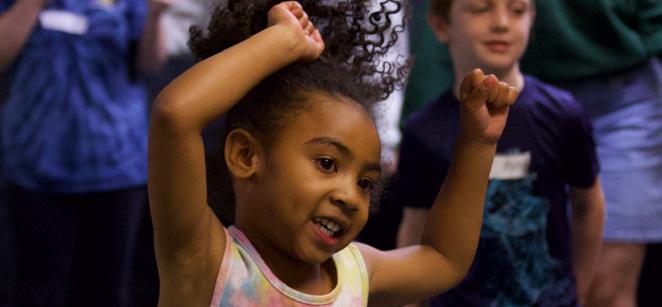
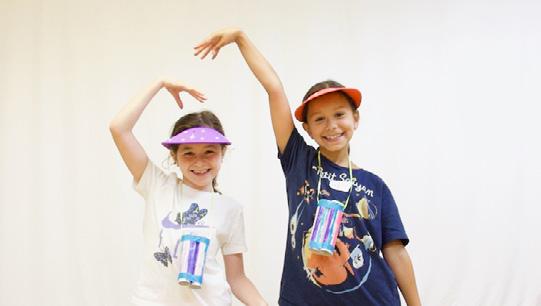

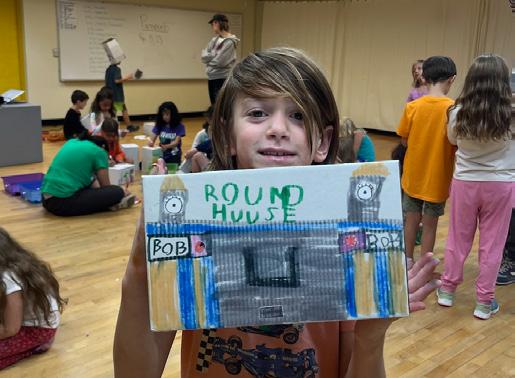
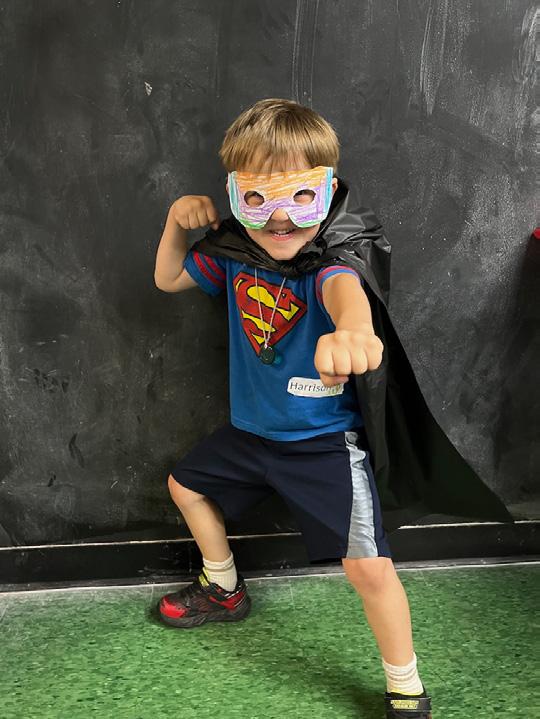
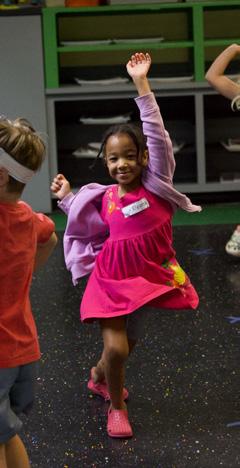
(GRADES met for week-long sessions at the Round House Education Center in Silver Spring. Students used their imaginations to travel to destinations as varied as the Australian Outback, a certain Galaxy Far, Far Away, and the Hundred Acre Woods through acting, movement, design and playmaking.

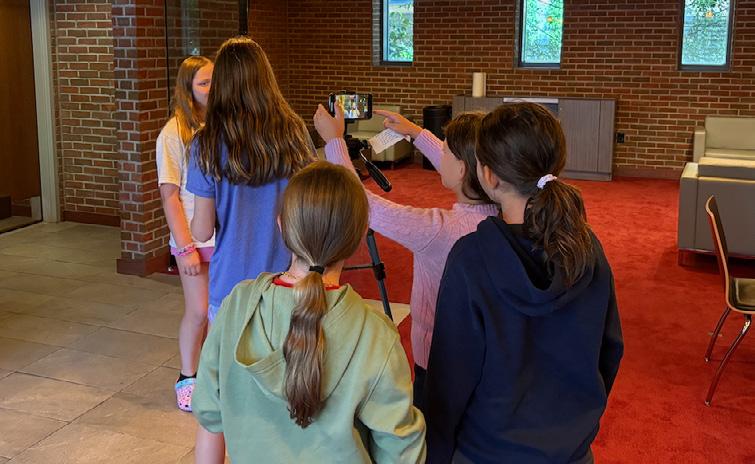



Students in GRADES 4-6 participated in PLAYMAKERS, FILMMAKERS, AND IMPROV camps held in both Bethesda and Silver Spring. Playmakers campers wrote, designed, and rehearsed a live production to share with family and friends. Filmmakers offered students the chance to create, write, design, and shoot a film.
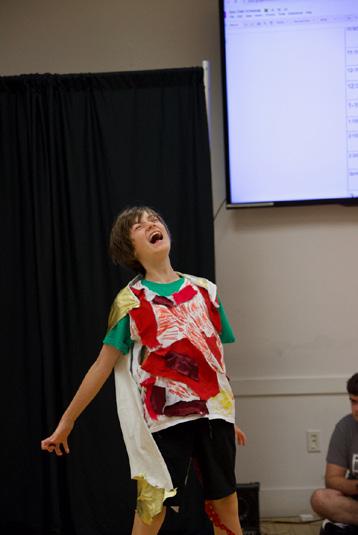
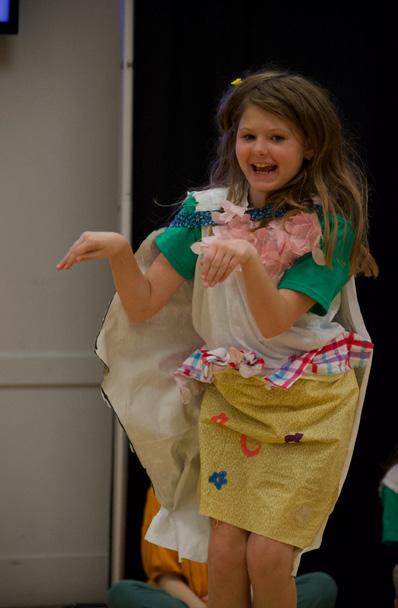

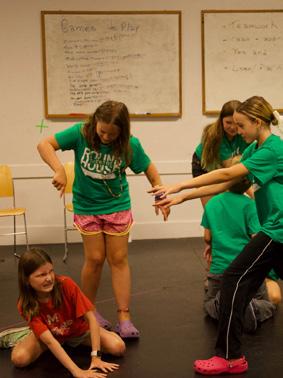
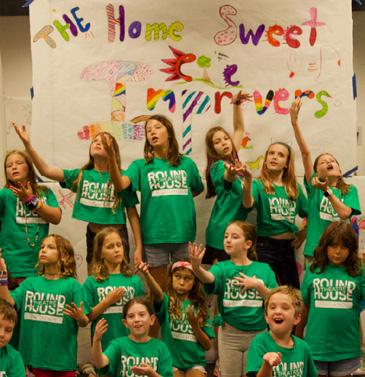
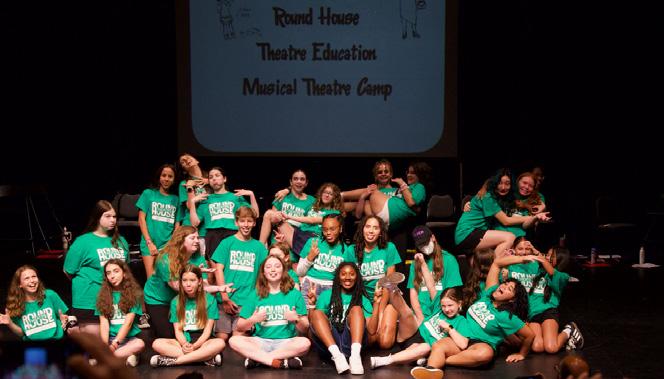
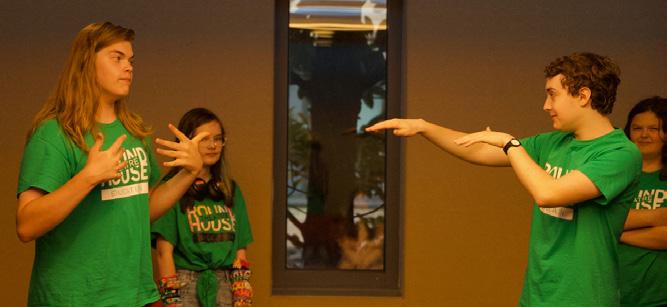
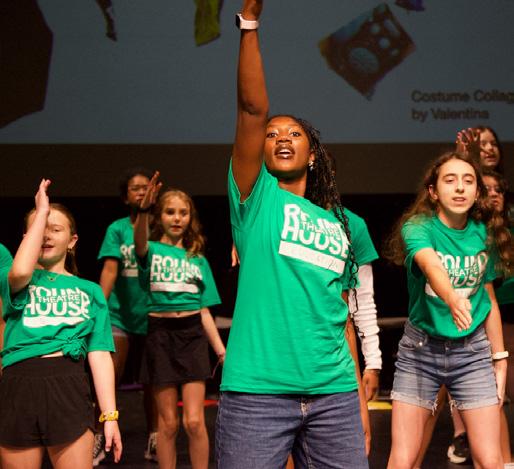
Students in GRADES 6-12 participated in camps with specialty topics including MUSICAL THEATRE, PLAY CREATION, FILMMAKING, IMPROVISATION, AND STAND-UP . Our teen camps focus on developing the individual voices and artistry of teen theatre makers by bringing teens together with professional artists who are also outstanding teachers.
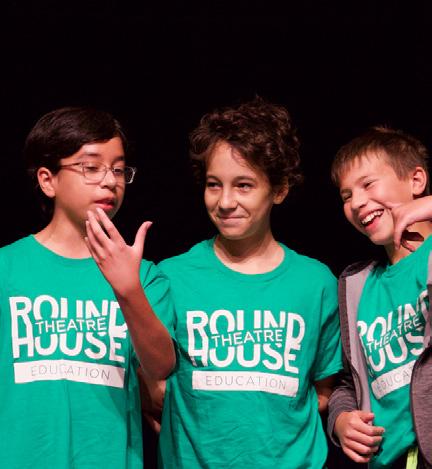
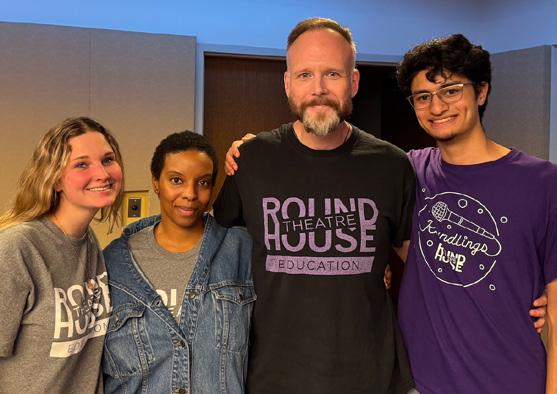


In addition, our summer programs brought interns and teen educators into our buildings to support our teaching artists and learn about the art of teaching theatre. Over the summer of 2025, 25 high school teen educators and 20 college interns joined 36 teaching artists and administrative staff to bring our summer camps to 732 registrants from ages 4-18! We also hosted two Summer RISE students through a partnership with Montgomery County Public Schools.

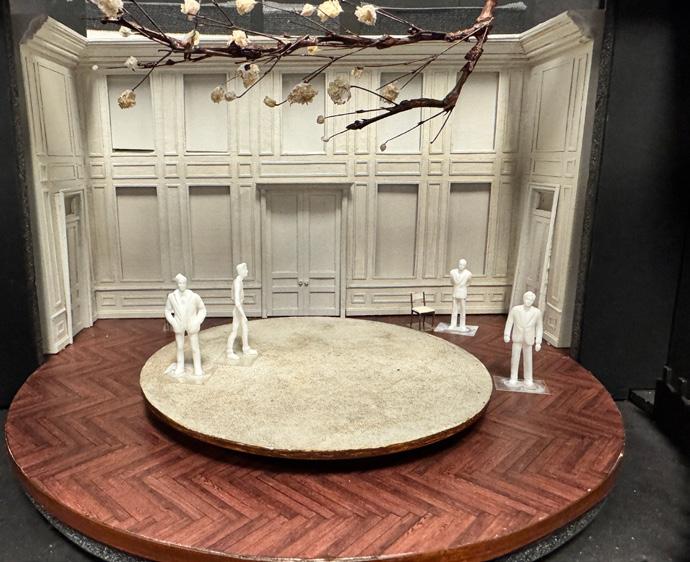
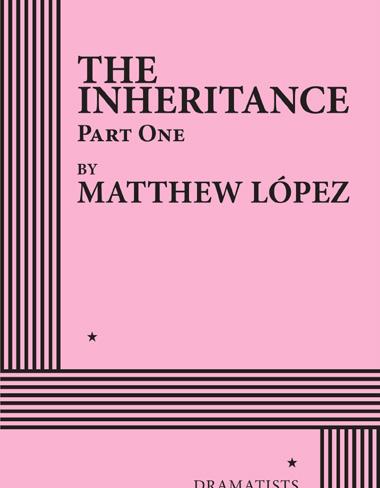
A designer starts with nothing but the words on a page.

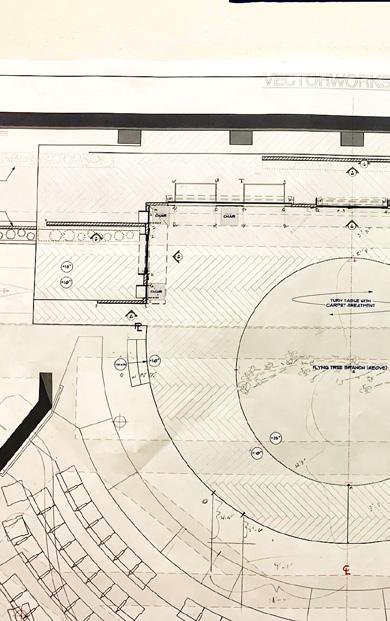
Then, they create a model to visualize the design, and a ground plan to communicate to the production team, who will build the real thing.
When audiences step into the theatre for Opening Night, they are actually seeing the end of a very long artistic process, which, counterintuitively, culminates in Opening Night.
Designers often start creating the world of a play months before the cast is assembled for first-read, creating ground plans, costume renderings, light plots, and more. Take a look at the many steps that went into creating the set for The Inheritance.

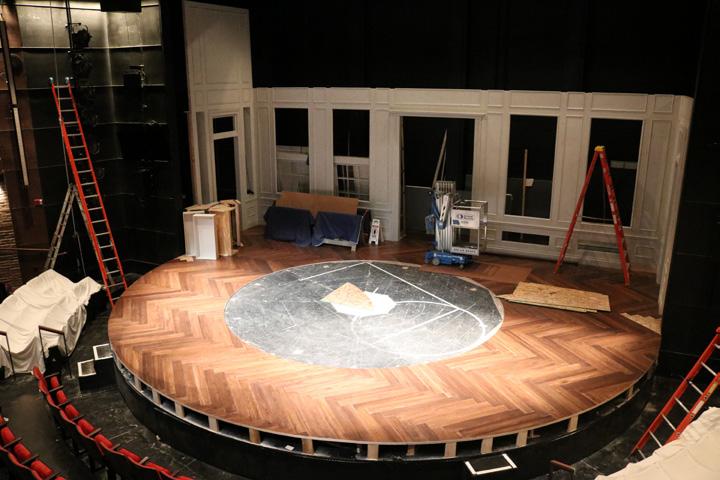
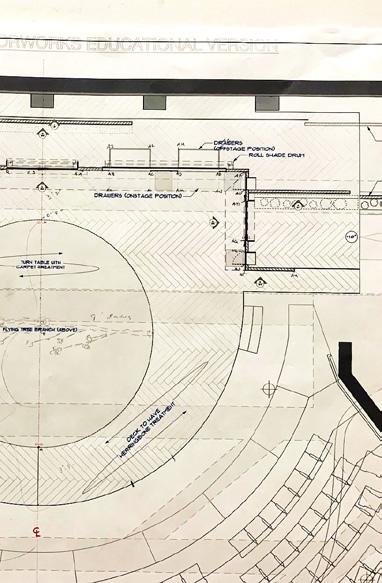
The production team builds the set off-site (often during the run of the previous show!) and then assembles it in our theatre in the weeks leading up to tech rehearsals.
Finally, our audience gets a chance to see it in its finished form.
It takes a tremendous amount of talent, planning, and coordination to create a show here at Round House. And for every actor you see onstage, there are at least twice as many unsung heroes behind the scenes. From scenic, costume, prop, light, projection, and sound designers, to stage managers, assistant stage managers, run crew, board ops, directors, assistant directors, fight choreographers, intimacy choreographers, dance choreographers, dramaturgs, understudies, vocal coaches, dialect coaches, casting directors, painters, technical directors, and so many more people—it takes a village.
Inspired by The Inheritance , Round House took an intergenerational approach to community engagement.
This summer, leading up to the opening of The Inheritance , we hosted six intergenerational roundtable discussions about what it means to grow older as a member of the LGBTQIA+ community.
The themes of chosen family, legacy, resilience, and the long shadows of the AIDS crisis, explored in The Inheritance , resonated deeply in these gatherings. Just as the play asks who we are to each other—and who we must become—the Round House Roundtables invited members of the LGBTQIA+ community to consider how they could honor the past, support one another in the present, and build a more inclusive future for LGBTQIA+ elders.

Conversations ranged from groups as intimate as eight participants to groups as large as eighteen. Each discussion was moderated by two individuals, representing different generations themselves; moderators included Michael Barret Jones and Natalie Cumming (from the Round House Development team), Holly Twyford (last seen here in Bad Books ), Aria Velz (local director, dramaturg, and producer), and Olivia Luzquinos (local actor, teaching artist, and playwright).
These Roundtables were such a success, that we recently added two additional sessions, in order to continue the conversation! You can read more about the Roundtables in the recently published article in American Theatre , “Around the Table With Queer Generations and The Inheritance .”


We sat down with the newest (and youngest!) member of Street 70, DYLAN PARHAM , to learn more about what inspired them to add Round House to their estate plans.
How long have you been a part of Round House?
I started working here in the box office a week before started in November 2022, right after college. I saw an Instagram post about jobs at Round House, applied, and I got it. And I’ve been

At Arena Stage, where I used to work, we had a quick training about estates from their Development department. And they linked me to a free resource called FreeWill. I literally got to my desk, looked it up, and finished it in 20 minutes. One of the parts included information about contributing a portion of your estate to organizations that you like—and it pointed out that if you give money to a family member, they have to pay taxes on it, but if you give it to a non-profit, it’s tax free.
So, I thought “I’ll just put Round House. I like Round House, it has given a lot to me, both personally and professionally,” and so I did it. I didn’t think much of it, until I got an email from Michael [Barret Jones, Round House Theatre’s Director of Development] telling me I was now a part of Street 70!
do you love about
I love everyone in our building, and because Round House is such a small organization, you know everyone!
As an artist, learning more about the DC theatre industry from the front-of-house side has been so valuable to me. I didn’t go to school for theatre, so I am still learning things, and I’ve learned so much from the people here. My long-term goal in my career is to be an Artistic Director, because I would love to lead a place like Round House, so this is the place to be.
Why support Round House?
Because I know where the money’s going. I know that it’s going to be used for a good cause. Small theatres like Round House are dying in America. Bigger theatres in DC and New York may have the resources or accolades, but theatres like Round House make theatre happen at a regional level. It employs people; I love that Round House actually employs DC artists! They support DC artists, and they understand our value!
That’s what I want people to know: when you go to see a show at Round House, you’re seeing DC actors and DC designers.
WE CLOSED OUR 2024-2025 SEASON WITH Rajiv Joseph’s wildly popular play, King James , presented in partnership with TheaterWorks Hartford and Barrington Stage Company. We were delighted to be able to close our season with a story about friendship, shared joy, and connecting with one’s roots; it was a reminder of what we love about theatre and art.
Opening Night was as joyful as the show. We were delighted to welcome members of TheaterWorks Hartford and Barrington Stage Company, along with critics, local theatre artists, and our tremendous donors.
Photos by Cameron Whitman photography
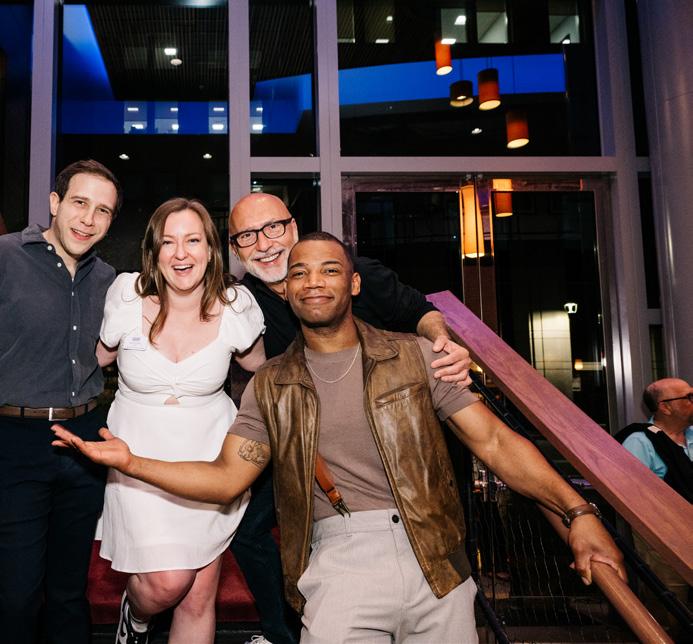
Gregory Perri (Matt), Sarah Cooney (Casting Director & Associate Producer), Rob Ruggiero (Director), and Blake Morris (Shawn)

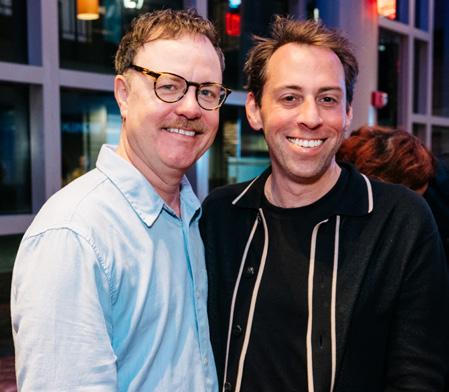
Tom Story (Director of The Inheritance ) and Alan Paul (Barrington Stage Company Artistic Director)
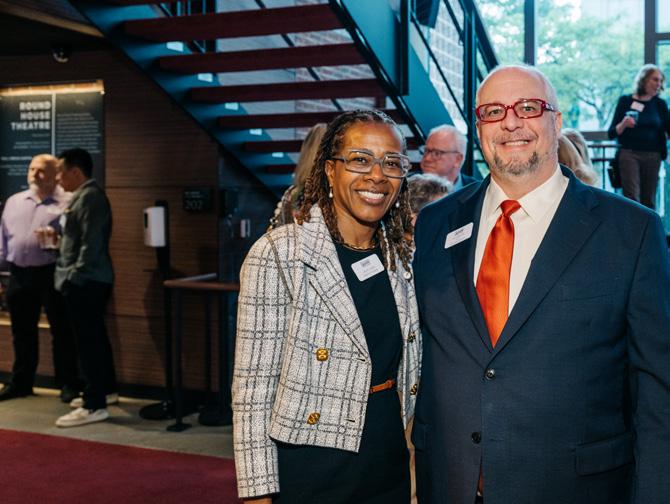

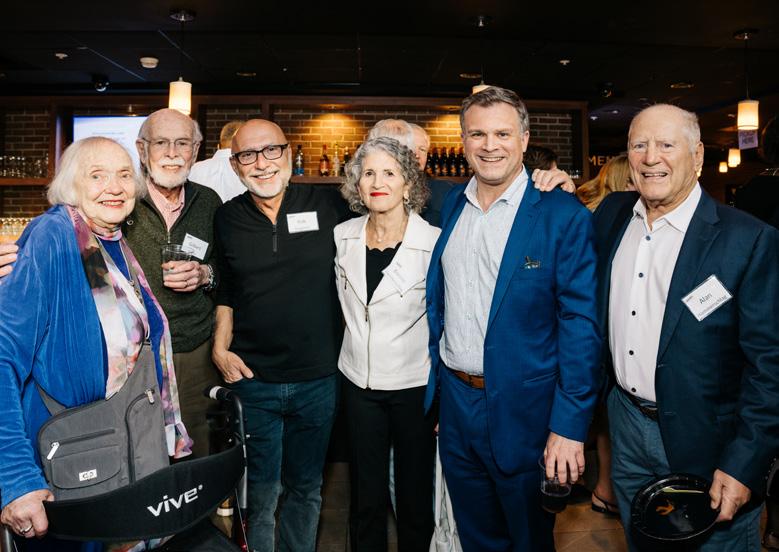
Rona & Gilbert Eisner, Rob Ruggiero (Director), Bonnie Hammerschlag, Ryan Rilette (Artistic Director), and Alan Hammerschlag
Joy Rhoden and Ed Zakreski (Executive Director)
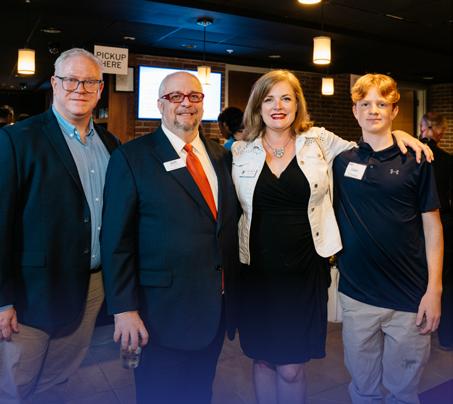
Michael Barret Jones (Director of Development), Ed Zakreski (Executive Director), Montgomery County Councilmember Dawn Luedtke, and Liam O’Croinin
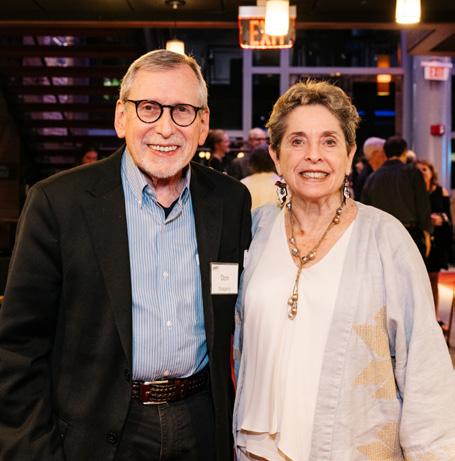
Season Sponsors Don Shapero and Linda Ravdin

JJ KACZYNSKI recently completed his 4th summer as a teaching artist at RHT. As a performer, he has been seen in Round House Theatre’s productions of Godspell , Our Town , Pippin , Amadeus , Young Robin Hood , and You’re a Good Man, Charlie Brown , for which he received a Helen Hayes Award nomination for Outstanding Supporting Performer in a Musical. He also designed projections for several productions including columbinus , The Book Club Play , and A Wrinkle in Time .

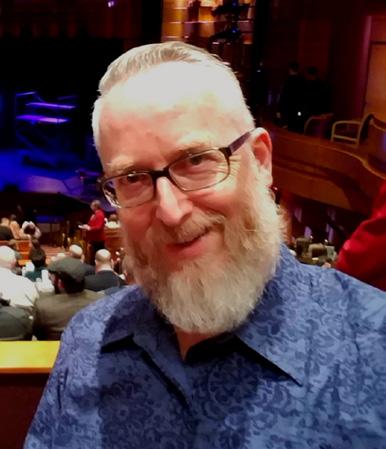

I’ve been an admirer of Round House’s since it was known as Street 70. I saw their production of Hello Dolly many years ago. Barnaby Tucker was played by a very young John Michael Higgins. Amazing production! Been a fan ever since.”
Round House teaching artist, SEAN BALDWIN acted in regional theatres for 30 years while directing and choreographing young performers in Chicago, New York, Washington, DC, and in the former Soviet Union.
Regional theatre work as an Equity actor includes Arena Stage, the Goodman Theatre, Signature Theatre, and Arden Theatre Company including Joseph Jefferson, Sam French and Helen Hayes award wins. Sean participated in the BMI Lehman Engel Musical Theatre Composer’s Workshop in NYC as a Director and Performer. He is the parent of 3 amazing people who own coffee shops, sing opera, and invent awesome A/V displays. For the last decade, he has been teaching Theatre at Washington Latin Public Charter School. A recent highlight has been playing a one-man adaptation of A Tale of Two Cities .
Street 70 [The original name of Round House Theatre] was my teenage refuge. Montgomery County Dept of Recreation had a flourishing Theatre program in the 70s and I was all over that from age 10 to 15. As the Rec Department moved into the closed Bushey Drive Elementary building, I remember kicking around that building: practicing Max in Where the Wild Things Are in the former cafeteria, as they demolished it for the theatre space. No, we weren’t wearing hard hats... it was the 70’s. The school was round, and we would play hide and seek in the halls because you didn’t have to go far before you were out of sight.
Watching touring artists like Craig Babcock perform and teach mime in my school, and seeing Jeff Davis and Jerry Whiddon develop new works over the summer with teen actors was a tribute to June Allen’s vision of igniting students’ passion for the performing arts.”
S A FIRST GLIMPSE OF OUR 2025-2026 SEASON, we gathered donors for the Inside Look of The Inheritance . We were lucky enough to get a chance to hear from the whole cast about the personal importance of this play. We also heard from Director Tom Story about how the design team worked to create the world of the play and to make each location and character distinct without relying on lengthy scene and costume changes.


